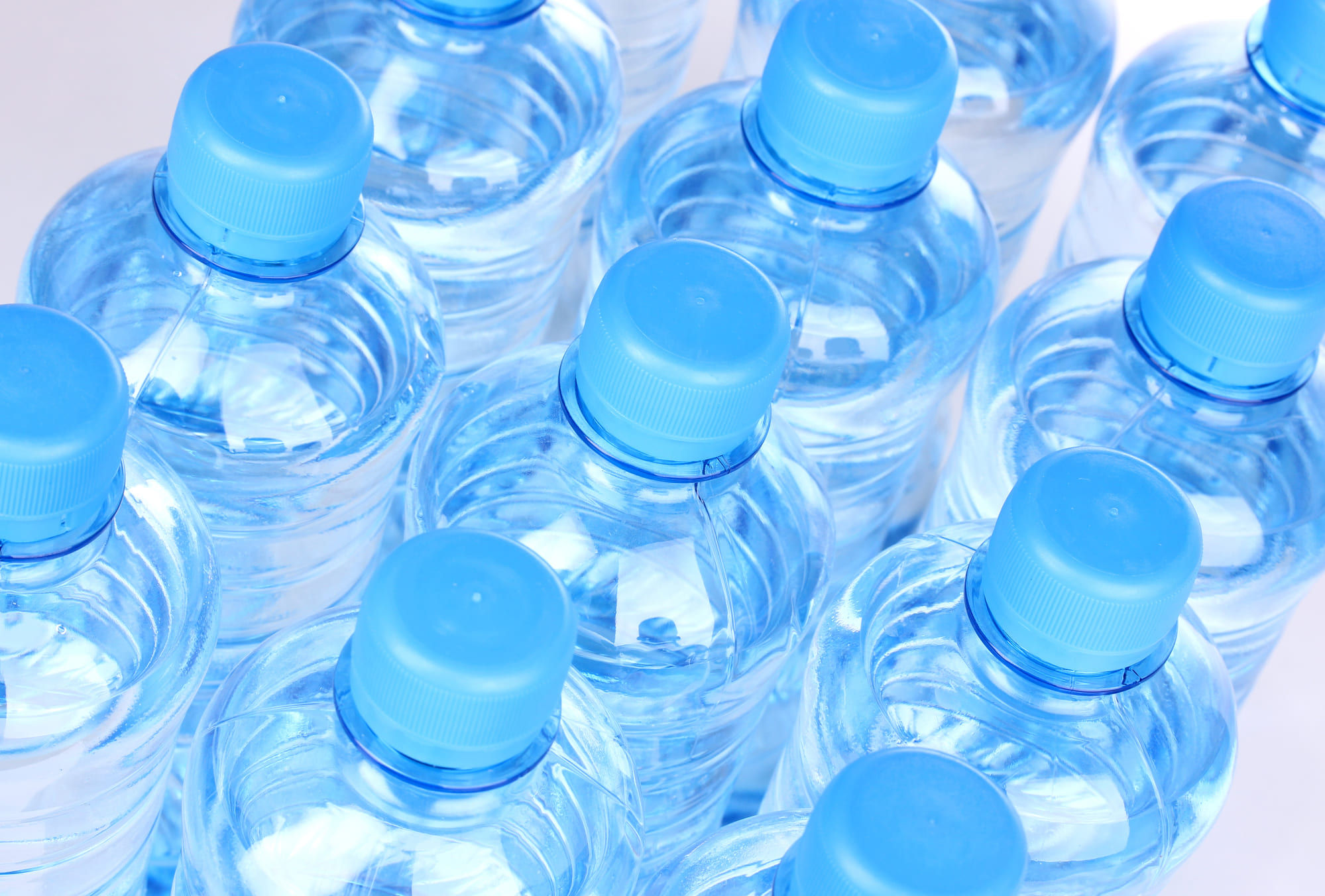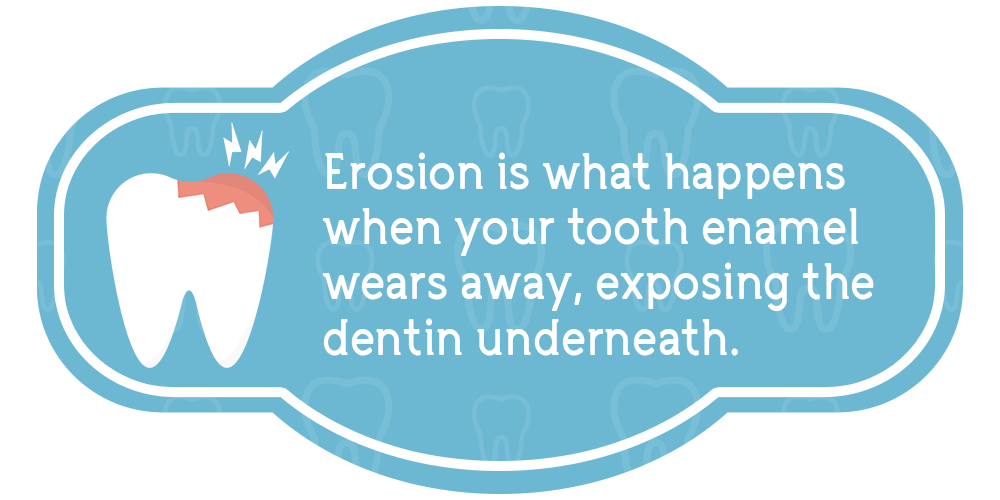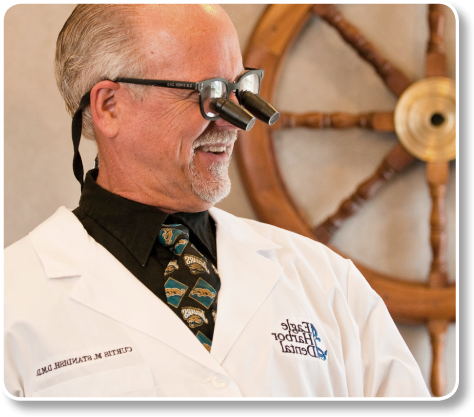How the Quality of Water Affects Your Teeth
Jul 3, 2023

It’s so basic – water is great for your health, and that includes your oral health. We’re all told to get our 8 glasses a day, or actually quite a bit more according to Mayo Clinic.

But really, how exactly is water affecting our teeth? And when you think about it, there are so many different kinds… tap water, bottled water, well water, salt water, distilled water, lemon water, cucumber water, coconut “water,” water filtered through reverse osmosis and then remineralized with some other gadget that we’re not even sure does what it says it will do.
So we’re here to ask:
Which water is the best water for oral health?
Sparkling Water
Sparkling water or carbonated water can be slightly more acidic than your average glass. That’s because the carbonation comes from carbon dioxide, which turns into carbonic acid in your mouth. That’s what gives sparkling water it’s zesty, tangy flavor.
However, it appears that it’s not acidic enough to cause any real issues. In a study where donated teeth were allowed to sit in either tap water or sparkling water, no significant difference in erosion was observed.
It is worth noting that carbonated water which is flavored or sweetened in some way is no longer just plain water with bubbles – and could potentially have a higher acidity that harms your teeth. That includes adding a simple squeeze of lemon or lime.
And for that matter, if you’re looking for a water to sip throughout the day, dentists do recommend still water over sparkling water. That’s because sparkling water doesn’t appear to cause any major issues, but if you were to sip and swish with it little by little throughout the day, every day, year after year… the relatively minor effects would certainly add up.
Having sparkling water with a meal may also help prevent any small risk of enamel erosion because the meal stimulates saliva flow.
Many scientists agree that teeth begin to demineralize around a pH of 5.5. For a specific comparison of pH between brands of sparkling water, check out this chart.
Tap Water
Most dentists recommend drinking standard tap water because patients can benefit from a number of minerals, including calcium, magnesium, and phosphorous.
But the biggest dental benefit from tap water is fluoride. In the United States, tap water has been fluoridated according to specific regulations for over 70 years. So the quantity of fluoride in water is carefully managed.
Although fluoride itself can be a topic of debate these days, drinking fluoridated tap water has reduced cavity occurrence in adults and children by about 25% according to the Centers for Disease Control and Prevention (CDC). In addition, the American Dental Association (ADA) provides a comprehensive list of health organizations which endorse tap water fluoridation.
It is important to note that fluoride exists naturally in water and many other sources. Fluoride doesn’t heal or reverse preexisting tooth decay, but it can help prevent new cavities from starting.
Oral health aside, if your family is traveling outside of the United States, always be sure to check with an accredited source whether the local tap water is safe for drinking.
Bottled Water
Some dentists may recommend not drinking bottled water.
This isn’t because bottled still water isn’t inherently bad for your teeth – overall, bottled water is a great choice for dental health. It’s miles better than sugary juices or sodas, red wine, coffee, tea, and even plain sparkling water.
However, the assumption is that if you’re drinking a lot of bottled or filtered water, you’re probably not drinking much hard tap water. And as mentioned above, tap water in the United States is fluoridated to help strengthen enamel and ward off tooth decay. If you drink bottled water, you could be missing out on this boost for your enamel, as well as a list of other minerals.
It’s worth the reminder that tap water isn’t our only source of fluoride. It can be found naturally in some foods and is a key ingredient in most toothpastes.
Well Water
Well water is generally more of a hard water, meaning that it carries higher mineral content.
If your primary residence runs on well water, it would be beneficial to get the water tested every now and then. Dentists’ main concern is understanding how much fluoride is in the water – too little, and it won’t prevent cavities. But too much can lead to discoloration of teeth.
By getting your water tested, you can also get an idea of the presence of other minerals, including calcium, magnesium, sodium, and phosphorus. Since tap water is regulated, the levels of these minerals is always known, whereas with well water it’s a gamble unless recently tested.
Provided that you’ve got a good balance of all of these minerals in your well water, then this is a great (and cheap!) source of water which promotes oral health and protects teeth.
Salt Water
Okay, we all know salt water isn’t great for drinking. But should we use it to rinse our mouths?
The short answer is maybe.
Rinsing with salt water has a number of potential benefits. It can help protect teeth and fight off bad bacteria. But use too much salt, rinse with it too often, or take in too much sodium from your food – and you might dry your mouth out. That would have an opposite effect, promoting the growth of bacteria and possibly irritating mucous membranes inside your mouth.
Rinsing with salt water could be considered a medicinal effort. It’s great to try 24 hours after a minor dental surgery, for mouth sores, on a sore throat, or even as a backup plan if no mouthwash or toothpaste is available. And despite the risk of overdoing the salt water rinse, it does seem to irritate mucous membranes less than some commercial mouthwash options.
Colgate recommends adding half a teaspoon of salt to one cup of lukewarm water and rinsing no more than 4 times per day.
Distilled Water
Distilled water carries similar risks to bottled water, although not all bottled water is distilled.
The main issue dentists have with distilled water is that all of the minerals, including fluoride, have been removed.
So while this option doesn’t harm teeth, it doesn’t do much to protect teeth either. If you prefer distilled water for removing contaminants, be sure you’re getting enough minerals from food, supplements, or try incorporating a remineralization process with drops or an additional pH-balancing filter.
This applies to almost all other forms of water filtration, especially reverse osmosis systems.
Lemon or Citrus Water
Lemon water isn’t a new thing. Most of us have asked for water at restaurants, where it was brought out with a wedge of lemon by default. And it’s refreshing!
In many ways, lemon water can be healthy for your body – the big issue is getting it safely past your teeth.
Citrus is acidic, so adding any type of citrus to your water and sipping all day could prove to be a mistake for dental health. The pH of lemon juice itself may range from 2 to 2.6, which is well below the 5.5 threshold where tooth enamel erosion can begin.
If you don’t want to give up your lemon water, try keeping it to specific times of day where you drink a glass all at once (such as during your morning routine, right after brushing your teeth). You can also try sipping it through a straw, adding in extra water to dilute the lemon juice, and drinking it lukewarm or slightly cold to slow any chemical reactions that might occur which cause erosion of enamel.
After drinking lemon water, DO rinse your mouth out with some type of still water right away, and DON’T brush your teeth for the next 30 minutes. The acidity of the lemon will have temporarily softened your enamel.
Infused Waters
These days, there’s a million different ways to dress up your water. And overall, dentists think that’s great, because staying hydrated helps prevent dry mouth!
But it’s worth noting that other concoctions besides citrus water may also be acidic or add various amounts of sugar to your beverage.
Some common herb-based water infusions might be a mildly safer, such as mint, basil, or cucumber water. But when it comes to dental health, it’s generally good advice to consider infused to be just a step above juices. In other words, plain would be better.
Coconut “Water”
Folks, this isn’t water. It’s a juice.
And we’re not saying it’s bad for you. If you’re outside sweating all day, enjoy a glass! But as a juice, understand that it can weaken enamel and leave sugar particles to sit on your teeth until your next brushing. (And be sure to wait 30 minutes before that next brushing.)
Hot vs Cold Water
For the most part, it doesn’t matter much whether water is hot or cold, as long as its plain.
The main concern dentists have with water temperatures is to not burn your mouth or damage the bristles of a toothbrush with very hot water.
For sensitive patients, hot or cold water may result in discomfort. If this lasts for several hours after drinking, be sure to ask your dentist about it at your next visit. It could be a sign of receding gums or enamel erosion, in which case there are procedures, lifestyle adjustments, or special toothpastes that may help.
It’s also worth noting that once you take plain hot water and turn it into tea or coffee (especially if sweetened) – the temperature does matter. Naturally-occurring chemicals and sugar can react in your mouth to cause enamel erosion problems, at which point the hotter the liquid, the faster the reactions, the worse its effects.
And What about Pool Water?
We get it, you’re not guzzling pool water.
Nonetheless, pool water is a critical consideration in our evaluation of water and its dental effects.
Research published in the American Journal of Epidemiology in April 1986 displays the devastating effects of seemingly minor interaction between our teeth and pool water. In Charlottesville, VA, 747 members of a private club pool were surveyed for symptoms compatible with enamel erosion. Only 3% of non-swimmers displayed symptoms of enamel erosion, while 12% of recreational swimmers displayed symptoms and 39% of the swim team members had strong indicators of erosion.
The gas-chlorinated pool at the private club was identified as the primary culprit, causing repeated acid exposure on teeth which had eroded the swimmers’ tooth enamel.
So if you’re a frequent swimmer, be sure to keep your mouth closed And if you’re a pool owner, all the more reason to regularly test your pool pH or consider switching to a salt water system.
Key Takeaways
For informational purposes only.











